CROWNS
A dental crown is a tooth-shaped “cap” that is placed over a tooth to cover the tooth to restore its shape and size, strength and improve its appearance. The crowns, when cemented into place, fully encase the entire visible portion of a tooth that lies at and above the gum line.
WHY IS A DENTAL CROWN NEEDED?
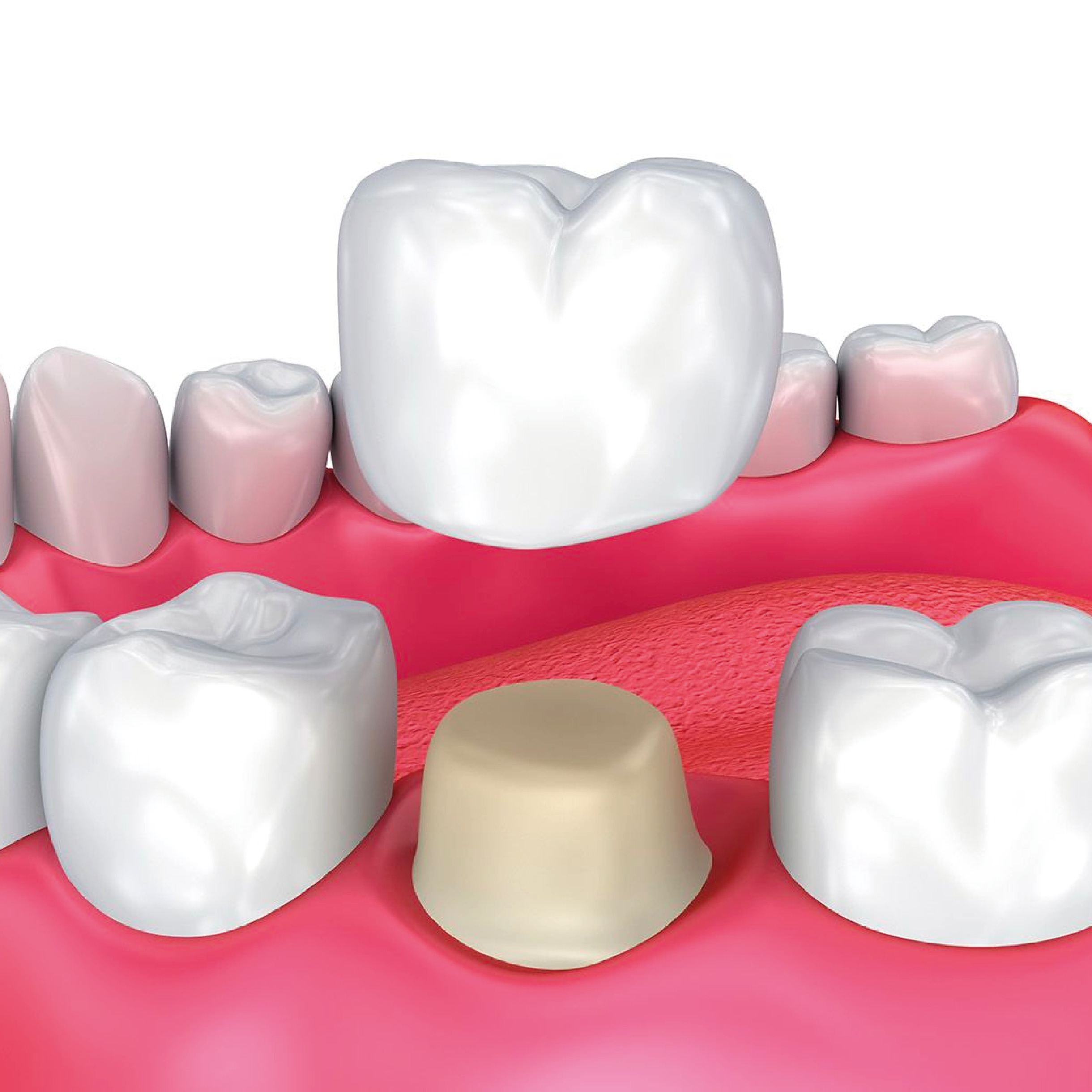
WHAT TYPES OF CROWNS ARE AVAILABLE?
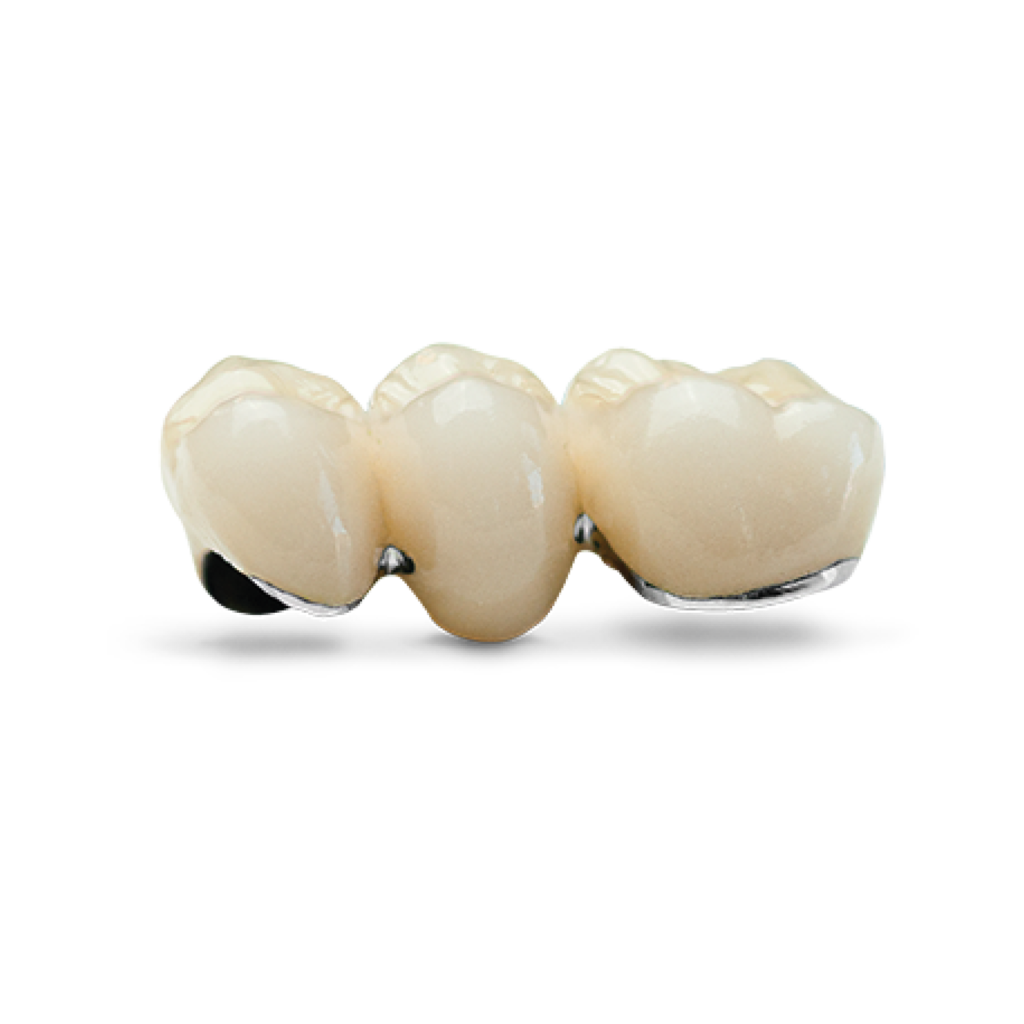
Porcelain fused to metal dental crowns can be color matched to your adjacent teeth (unlike the metallic crowns). However, more wearing to the opposing teeth occurs with this crown type compared with metal or resin crowns. The crown’s porcelain portion can also chip or break off. Next to all-ceramic crowns, porcelain fused to metal crowns look most like normal teeth. However, sometimes the metal underlying the crown’s porcelain can show through as a dark line, especially at the gum line and even more so if your gums recede. These crowns can be a good choice for front or back teeth as well as long bridges where the metal is needed for strength
All-resin dental crowns are less expensive than other crown types.
However, they wear down over time and are more prone to fractures than porcelain fused to metal crowns.
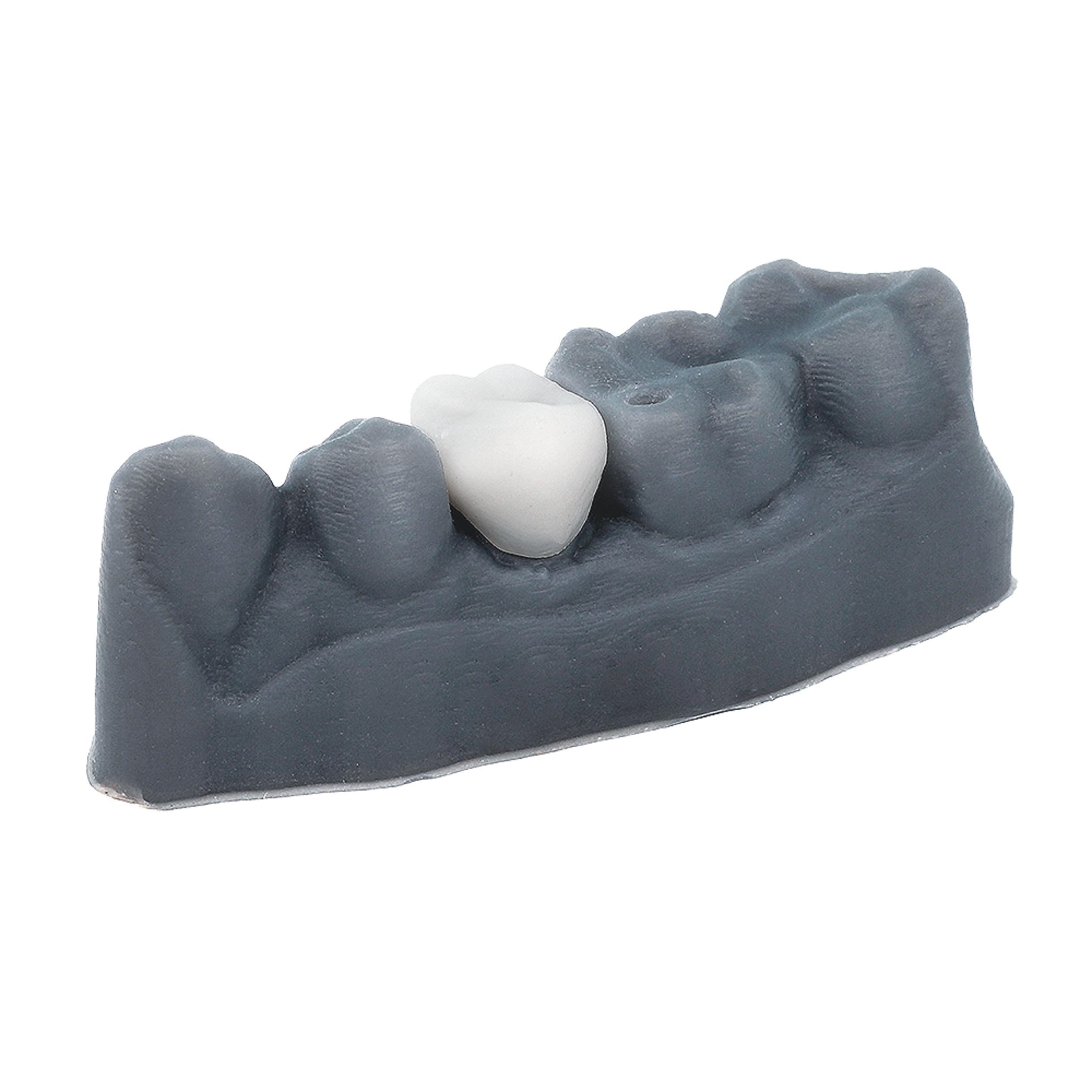
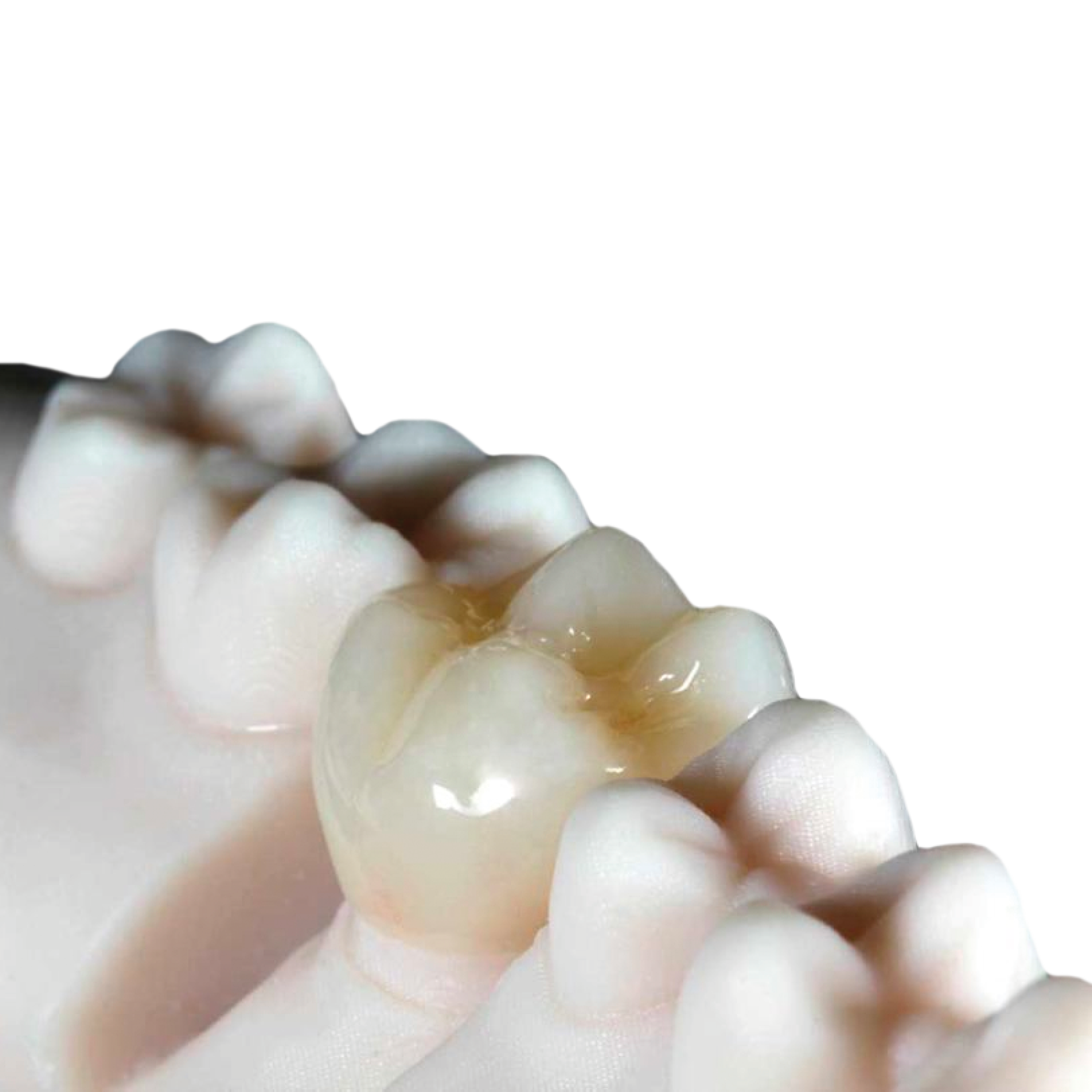
All-ceramic or all porcelain dental crowns provide
better natural color match than any other crown
type and may be more suitable for people with
metal allergies. All ceramic crowns can be used for front
and back teeth.
Temporary versus permanent. Temporary crowns can be made in your dentist’s office, whereas most permanent crowns are typically made in a dental laboratory. Typically, temporary crowns are made of an acrylic-based material or stainless steel and can be used as a temporary restoration until a permanent crown is constructed by a lab.
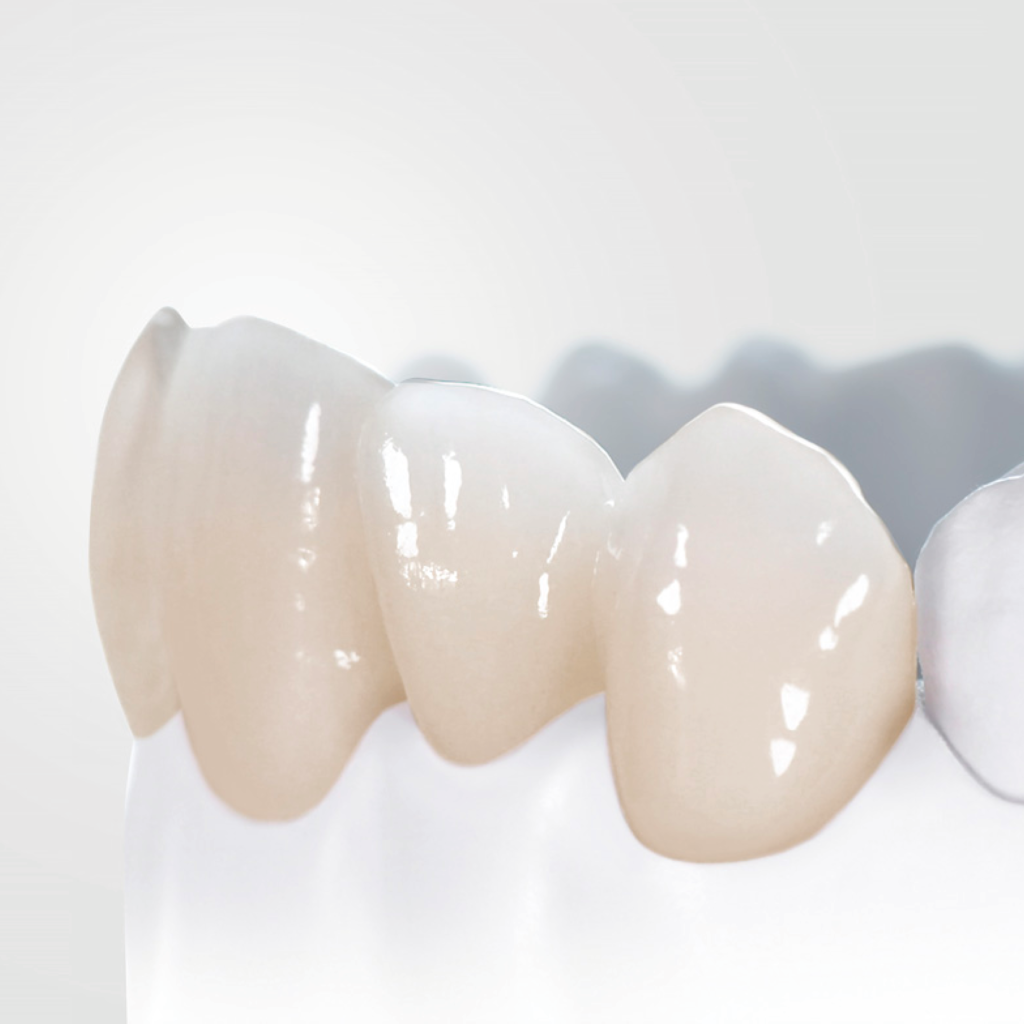
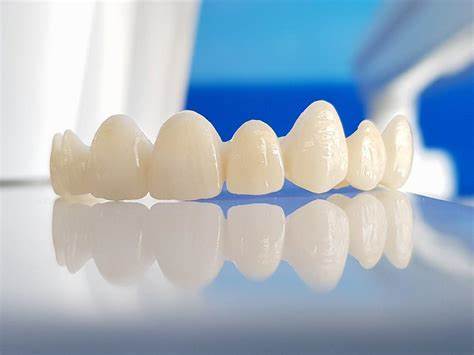
Dental zirconia crowns are a type of dental restoration used to replace damaged or decayed teeth. They are made from zirconia, a strong and biocompatible ceramic material known for its durability and natural appearance. Zirconia crowns offer several advantages, including high resistance to wear, chipping, and cracking. They provide excellent aesthetic results and are often preferred for their strength and long-term durability.
The resistance of zirconia crowns 500MPA, refers to their ability to withstand forces during normal oral function. Zirconia has high flexural strength, which means it can withstand biting and chewing forces without breaking or fracturing. This strength makes zirconia crowns highly resistant to wear, ensuring their longevity and reducing the need for frequent replacements.
